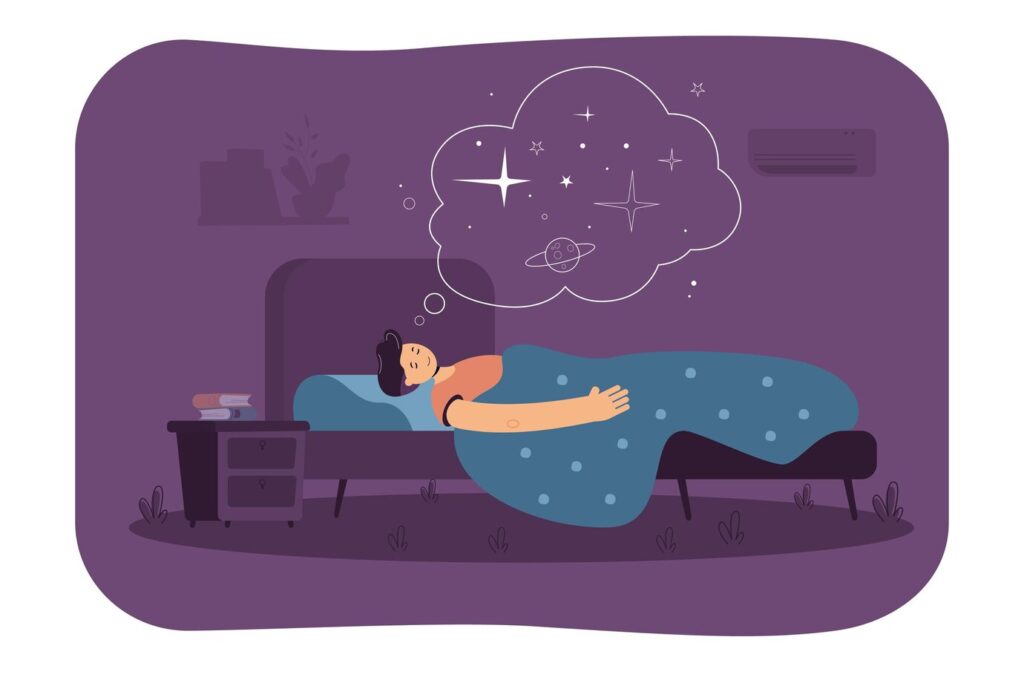Dreams have fascinated humans for centuries. They can be strange, emotional, vivid, or even unsettling, often leaving us wondering what they mean. Some dreams feel like random stories, while others seem to hold deep significance, connecting to our fears, desires, and subconscious thoughts. Many theories attempt to explain why we dream, yet the exact purpose remains a mystery. Scientists believe that dreams are connected to memory processing, emotional regulation, and problem-solving. Psychologists, on the other hand, suggest that dreams reflect hidden parts of our mind, bringing unresolved emotions and suppressed thoughts to the surface.
Do Dreams Help Process Memories?
One of the most well-known explanations for dreaming is that it helps the brain organize and process information. Throughout the day, we take in countless details, from conversations to images to emotions, and during sleep, our brains sort through this information, deciding what to keep and what to discard. This is why dreams often feature fragments of real-life events, blending them in unpredictable and sometimes bizarre ways.
Dreams may serve as a way for the mind to make sense of experiences, helping us store important memories while filtering out unnecessary details. This process could explain why certain dreams feel like echoes of recent experiences, as the brain attempts to consolidate information from our waking life.
Why Do We Dream About Stressful Situations?

Another theory suggests that dreams play a crucial role in emotional regulation. When we experience stress, anxiety, or strong emotions, our brains may use dreams to work through these feelings. Have you ever had a stressful day and then found yourself dreaming about a similar situation at night? This could be the brain’s way of helping you process emotions, allowing you to release tension and confront fears in a safe, subconscious space.
Some experts believe that dreaming about difficult situations can even prepare us for real-life challenges, offering a mental rehearsal of sorts, allowing us to work through problems without direct consequences.
Common Dream Themes and Their Possible Meanings
While dreams can be deeply personal, some themes appear repeatedly across cultures and individuals. Many people experience dreams of falling, which can symbolize a loss of control, insecurity, or fear of failure. Others frequently dream of being chased, which may reflect avoidance of a difficult situation or unresolved fear.
Dreams about flying are often associated with a sense of freedom, confidence, or escape from limitations, while dreams of losing teeth can be linked to feelings of vulnerability, anxiety, or concerns about appearance. Despite these common interpretations, dreams remain highly subjective, and their meanings are best understood within the context of an individual’s personal experiences and emotions.
Why Do Some Dreams Feel So Real?

Some dreams feel more real than others, leaving a lasting emotional impact even after waking. This is because the brain areas involved in emotional processing, such as the amygdala and prefrontal cortex, are highly active during REM sleep, the stage of sleep when most dreaming occurs. This heightened brain activity can make certain dreams feel as intense as real-life experiences, causing strong emotional reactions. Some people even experience lucid dreams, where they become aware that they are dreaming and can sometimes control their actions within the dream. Lucid dreaming has been studied as a potential tool for self-exploration, emotional healing, and overcoming recurring nightmares, as it allows individuals to actively engage with their subconscious thoughts.
Can Dreams Predict the Future?
There is also the intriguing question of whether dreams can predict the future. Many people claim to have had dreams about events that later happened in real life, leading to speculation about whether dreams have a deeper, unexplained connection to reality. While scientific evidence does not support the idea that dreams can predict the future, some researchers suggest that dreams may pick up on small details and subconscious patterns that our waking minds overlook. This could create the illusion of a prophetic dream when, in reality, the brain is simply making connections based on existing knowledge and observations.
How to Understand Your Dreams
Understanding dreams can be challenging, but keeping a dream journal can help identify patterns and recurring themes. Writing down dreams immediately upon waking can provide insight into emotions, fears, and desires that might not be fully realized during waking life. Analyzing dreams in the context of personal experiences, recent thoughts, and emotional states can reveal hidden messages from the subconscious mind. While not all dreams carry deep meaning, they can still provide valuable insight into mental and emotional well-being.
Dreams remain one of the most fascinating and mysterious aspects of human psychology. Whether they serve as a tool for processing emotions, organizing memories, or simply creating stories from random thoughts, they play an essential role in our mental lives. While much about dreams remains unknown, they continue to be a source of curiosity, wonder, and self-discovery.











